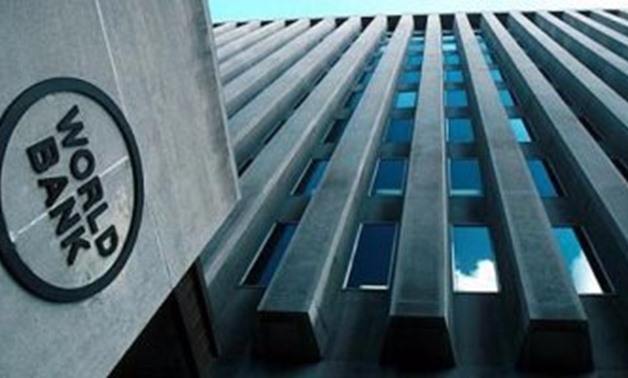
Reuters- World Bank office
CAIRO – 17 April 2018: The World Bank upgraded its expectations of the Egyptian Economy during the upcoming two years, anticipating that the gross domestic product will record 5 percent in 2018 and 5.5 percent in 2019, reaching 5.8 percent by 2020.
The World Bank forecasted earlier in the report of the Economic Observatory for the Middle East and North Africa that Egypt will record a growth rate of 4.5 percent in 2018, and that this rate will rise to 5.3 percent in 2019.
In its latest report on the outlook for the Egyptian economy, the World Bank predicted that the inflation rate will reach 14 percent in 2019 and will decline to 12 percent in 2020.
The Central Agency for Public Mobilization and Statistics (CAPMAS) announced that the annual consumer price inflation slipped to 13.1 percent in March 2018, compared to 32.5 percent in the same month of 2017.
The World Bank said that with the momentum of reforms in the Egyptian economy, economic activity is expected to improve and distortions will be greatly reduced, adding that flexibility of private consumption and private investment will be the incentive of growth, in addition to a gradual improvement in exports, "especially from the tourism and gas sectors".
Egypt had embarked on a bold economic reform program that included the introduction of taxes, such as the value-added tax (VAT) and cutting energy subsidies, all with the aim of trimming the budget deficit.
The country floated its currency in November 2016 before it clinched a $12 billion loan from the International Monetary Fund (IMF). The IMF Executive Board approved in November 2016 a three-year Extended Fund Facility (EFT) loan to Egypt worth $12 billion to support its economic reform program.
In December 2017, Cairo received the third $2 billion tranche of its loan, bringing total disbursements to $6.08 billion.
The $2 billion fourth tranche will be received by Cairo after concluding the program’s third review in June.
Continuing the reforms decisions, the Monetary Policy Committee of the Central Bank of Egypt lowered the interest rates for the second time this year by 1 percent on Thursday March 29.
The committee set the overnight rate, and the overnight lending rate, at 16.75 percent and 17.75 percent, respectively.
In February, the committee lowered the interest rates by 1 percent for the first time since the flotation of the Egyptian currency in November 2016, after inflation rates slowed down.
As per the budget deficit, the bank said that it would be reduced to 9.8 percent of GDP in 2018; slightly higher than the estimated budget due to the increase in the volume of interest payments, the rise in oil prices and an increase in the exchange rate than was estimated in the budget.
The bank further expected the public debt to decrease to 99.8 percent of GDP in 2018 and to gradually decline to 96.4 percent in 2019 and to 91.3 percent in 2020.
The fiscal adjustment program is expected to be dependent on revenue mobilization, particularly the increase in value-added tax (VAT) receipts, as well as energy support reforms. The current account deficit is also expected to shrink to 4.9 percent of GDP in 2018 from 6.6 percent of GDP in 2017.
According to the World Bank, the problem of poverty in Egypt has been solved but the disparities between the regions are still part of the overall landscape in the country.
Poverty rates in Upper Egypt are three times higher than those in the cities.

Comments
Leave a Comment